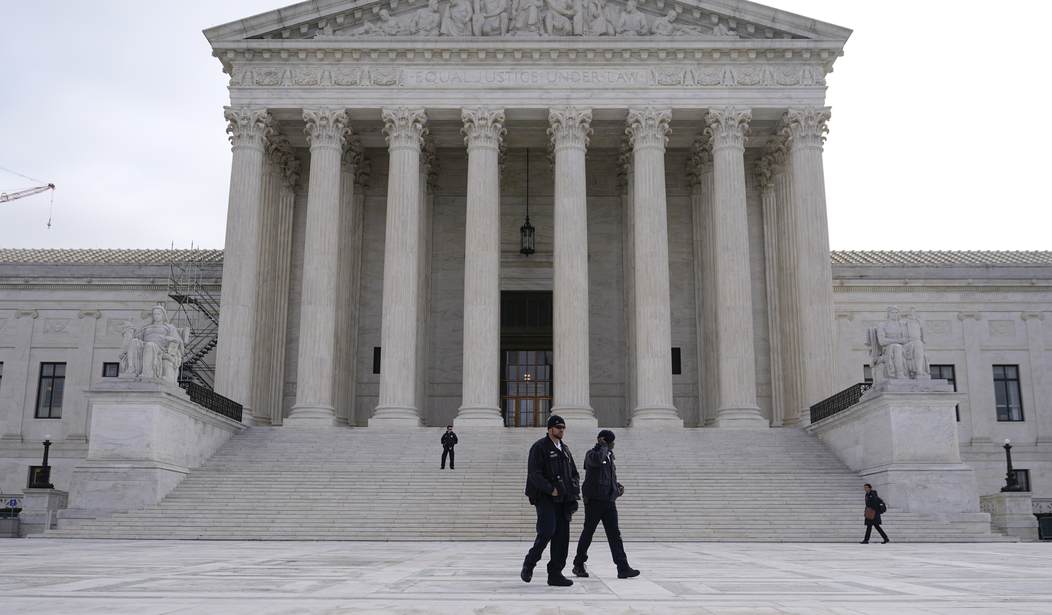United States v. Rahimi is a case dealing with a prohibited person being in possession of arms. Just the other day I covered one of the many amici briefs that have been filed in support of Rahimi, one that the Second Amendment Foundation wrote. There’s a lot of attention being paid to this particular case, for good reason. It’s quite possible that the U.S. Attorney General is going to use this case as an opportunity to twist and contort NYSRPA v. Bruen. To date, there have been 21 and counting briefs filed in support of Rahimi and about 36 in support of the U.S. government.
The Rahimi question is whether or not a blanket prohibition on those subject to a civil domestic violence restraining order would be constitutional. Rahimi, during the course of some less-than-savory acts, got charged with being in possession of a firearm when under such an order. The case at hand is not about whether or not violent people or those who beat their domestic partners should or should not have firearms, but rather about if a civil – not criminal – process should lead to the loss of a constitutional right.
Discussed previously, SAF’s brief goes straight to “the only analogue that was around at the time of the founding” concerning blanket prohibitions had to do with British loyalists in a post revolution time.
A brief that was filed on October 4, 2023 by multiple “law enforcement groups” and “firearms rights groups” latches onto an argument that I’ve been making since day one – this is a due process case.
That brief represents the following groups: Bridgeville Rifle & Pistol Club, Connecticut Citizens Defense League, Delaware State Sportsmen’s Association, Gun Owners Action League (Massachusetts), Law Enforcement Legal Defense Fund, Maryland State Rifle & Pistol Association, Vermont Federation of Sportsmen’s Clubs, Vermont State Rifle & Pistol Association, Virginia Shooting Sports Association, Western States Sheriffs’ Association, and Women for Gun Rights (Formerly known as the DC Project).
The 37 page text makes the argument that we need not look any further than the facially unconstitutional due process violations that are involved.
It is unnecessary to revisit Bruen in this case, or to determine whether the Fifth Circuit was correct in holding 18 U.S.C. § 922(g)(8) to be unconstitutional on its face due to the lack of historical analogues for that statute. There is a much simpler reason that § 922(g)(8) is unconstitutional. On its face, it deprives individuals who are subject to domestic violence restraining orders of their Second Amendment rights to possess a firearm without due process of law. Part I of this brief focuses on the due process issues. Part II places § 922(g)(8) in perspective, discusses some problems with its practical application, and dispels some misperceptions of how central or important that statute may (or may not) be in the landscape of measures designed to protect vulnerable persons against domestic violence. Although some factual matters are discussed, it is not an attempt to engage in interest balancing, but rather is designed to show that some of the claims made in support of § 922(g)(8)’s importance are misplaced or exaggerated.
Other briefs recently filed include ones from the National Rifle Association, the Firearms Policy Coalition, Gun Owners of America, National Association for Gun Rights, et.al.
The Firearm Policy Coalition brief, as noted in a statement, focuses on “Congress’ lack of authority to engage in broad federal firearm disarmament–noting that it is a power that was specifically reserved to the states and not granted to Congress. ‘Amicus agrees with Respondent that 18 U.S.C. § 922(g)(8) violates the Second Amendment,’ argues the brief. ‘This brief focuses on Respondent’s alternative argument that Congress has no authority to enact a ban on firearm possession by individuals subject to family law restraining orders.’”
The National Foundation for Gun Rights, the legal branch of the National Association for Gun Rights, filed a brief that asks the court to reaffirm several things that the lower courts seem to be still getting wrong in a post NYSRPA v. Bruen U.S.
“This is the first major Second Amendment case the Supreme Court has taken since last year’s Bruen decision. It’s important that we are there to remind the Court to double down on what they said in Bruen, particularly the ‘text, history, and tradition’ standard, instead of watering it down,” said Hannah Hill, Executive Director of the National Foundation for Gun Rights. “This case is only one of many lawsuits either underway or in the works challenging unconstitutional federal anti-gun laws. It is our hope the Court remains more loyal to the Second Amendment than to the longstanding federal gun control regime.”
An amicus brief filed by the National Rifle Association strikes at a core ideal that’s important in the modern United States, in particular in the modern disarmament movement. Whether we’re dealing with a matter of a restraining order or, the more dangerous and inbred cousin, a red flag order, they speak about the process.
While this case is not about a red flag order, I can see the arguments being made here, as well in the other briefs – if successful – used to topple down any of the extreme risk protective order laws that have been adopted in many states. The anti-civil liberty crowd exploited the public’s and in many cases legislators’ ignorance, to see such measures become law. Yes, there was and is plenty of malice, but we shall not attribute the enactment of all of these provisions to what is also due to ignorance.
The NRA’s brief snaps 18 U.S.C. § 922(g)(8) like a twig, and could easily be remanufactured to do the same on other similar topics.
Rahimi should not only lose his Second Amendment liberties, but he should also lose all of his liberties—if the allegations against him are ultimately proven true with sufficient due process. But constitutional safeguards cannot be set aside to obtain those ends. Just like shortcutting the Constitution to coerce confessions out of violent criminals like Ernesto Miranda cannot be justified, Miranda v. Arizona, 384 U.S. 436, 444 (1966), shortcutting it to deprive people of their Second Amendment rights cannot be justified either. That line of reasoning has been squarely rejected: “The needs of law enforcement stand in constant tension with the Constitution’s protections of the individual against certain exercises of official power. It is precisely the predictability of these pressures that counsels a resolute loyalty to constitutional safeguards.” Almeida-Sanchez v. United States, 413 U.S. 266, 273 (1973); New York State Rifle & Pistol Ass’n, Inc. v. Bruen, 142 S. Ct. 2111, 2126 n.3 (2022) (“‘The right to keep and bear arms … is not the only constitutional right that has controversial public safety implications.’”) (citation omitted). That line of reasoning must, once again, be rejected with respect to 18 U.S.C. § 922(g)(8). Rahimi can only be deprived of his rights consistently with the right to keep and bear arms and the right to due process. That has not happened yet.
United States v. Rahimi is scheduled for oral arguments at the Supreme Court on November 7, 2023. Bear in mind that NYSRPA v. Bruen was argued on November 3, 2021, only two years prior – almost to the day. Considering that, we can hopefully expect an opinion by the end of June of 2024, much like we saw with the NYSRPA v. Bruen decision in 2022.
On the big picture, historically, the Heller and McDonald cases had almost a two year delta between argument dates, but those were like-cases, involving the same conflict. There was no further SCOTUS action until Caetano was GVRed in 2016. It took an additional five years for the high court to hear a case concerning arms, 13 years since the Second Amendment was ruled an individual right.
Rahimi might not be the optimal champion for our civil liberties. This is not a person that I’d be inviting over for dinner, that’s for sure. However, we are dealing with a near warp-speed concerning litigation on Second Amendment issues. Yes, things that were GVRed by the high court post NYSRPA v. Bruen probably should have already been decided, with civil liberties being the victor, but things on a litigation front are chugging along quickly.
Rahimi forces both Second Amendment supporters and supporters of civil rights who do not appreciate the Second Amendment to answer tough questions. Many supporters of the government are putting out a lot of background noise. Everyone needs to remember, including the high court, that Rahimi is about process, not about how many merit badges the individual failed to be awarded during his life. The multitude of amicus briefs all make similar arguments about where we should be averting our attention towards. I’ll be tuning in on the 7th of November, and you can bet we’ll be covering this here at Bearing Arms.








Join the conversation as a VIP Member